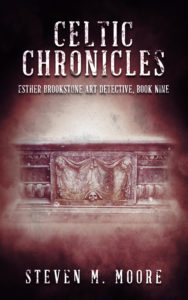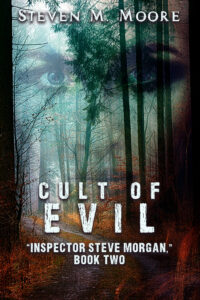Celtic civilization and history…
It’s not easy to discover facts about the ancient Celts. Their origins seem to lie in Central Europe. They were pagans…if one can say they paid any attention at all to religion beyond their myths and legends. They didn’t record their history, so the historical records are distorted by others’ descriptions. It’s known that they won important battles against the Greeks and Romans because we have the latter’s (badly biased) records of those events. Bodica later on made the Romans’ miserable in ancient England.
The Roman legions, much more organized than the largely leaderless Celts, drove the latter back to the far borders of their empire. Thus we find Celts in Spanish Galicia, French Brittany, Scotland, Ireland, and Wales. Those separate Celtic groups’ dialects evolved into the Gaelic languages we know today.
The biased historical records continued with the Irish monks, Christianity versus paganism now creating the biases. Those monks are justifiably credited with preserving western civilization, protecting Greek and Roman culture and history from the invasions of Viking and other barbarous hordes, but they largely ignored Celtic civilization and history except in their colorful artwork found in gilded tomes like the famous Book of Kells (on display now in Dublin’s Trinity College library).
 Recorded Celtic history is even a bit lacking after St. Patrick, i.e. seventh century on, and certainly before with the Viking, Norman, and Saxon influences. The often-quoted adage that the conquerors write the historical accounts to make themselves look good is never more true than with Celtic history. The history of St. Patrick is an obvious example. He was actually a Briton, and not enough is known about his life (there are a lot of legends). Maybe he was indeed once the slave of an Irish chieftain, but it’s certainly not true that he drove the snakes out of Ireland! (There are Irish politicians, after all!)
Recorded Celtic history is even a bit lacking after St. Patrick, i.e. seventh century on, and certainly before with the Viking, Norman, and Saxon influences. The often-quoted adage that the conquerors write the historical accounts to make themselves look good is never more true than with Celtic history. The history of St. Patrick is an obvious example. He was actually a Briton, and not enough is known about his life (there are a lot of legends). Maybe he was indeed once the slave of an Irish chieftain, but it’s certainly not true that he drove the snakes out of Ireland! (There are Irish politicians, after all!)
 I hadn’t included much about Celtic history and civilization in my novels until I wrote some recent books. (The starship Brendan in the Dr. Obregon stories doesn’t count.) There’s a bit of that history in Celtic Chronicles (last novel in the “Esther Brookstone Art Detective” series) and the novels in the “Inspector Steve Morgan” series (Cult of Evil, for example) but the lack of reliable historical records is this wannabe historian’s excuse along with a lack of historical training to make all such mentions minimal. In brief, the O’Moore in me failed to spring forth to make my blarney more convincing.
I hadn’t included much about Celtic history and civilization in my novels until I wrote some recent books. (The starship Brendan in the Dr. Obregon stories doesn’t count.) There’s a bit of that history in Celtic Chronicles (last novel in the “Esther Brookstone Art Detective” series) and the novels in the “Inspector Steve Morgan” series (Cult of Evil, for example) but the lack of reliable historical records is this wannabe historian’s excuse along with a lack of historical training to make all such mentions minimal. In brief, the O’Moore in me failed to spring forth to make my blarney more convincing.
I must say, though, that anyone attempting to write British-style mysteries better realize that Celtic civilization is very much a part of the British Isles background, whether the Brits like it or not. They (most notably Cromwell) might have wanted to erase its appearance in the historical records, but they’ll continue to find that an impossible task, if only for the fact that so many famous authors claimed by the British are Irish! And imagine how intolerable the Brits would have become if writers like Shaw and Wilde hadn’t lampooned English aristocrats and Yeats hadn’t shown them how to write poetry!
Yes, Celtic civilization is part of the British cultural psyche no matter how much they claim otherwise!
***
Comments are always welcome. (Please follow the rules listed on the “Join the Conversation” web page.)
Dr. Carlos, Chief Medical Officer. Lucky you! Carlos Obregon’s adventures as Chief Medical Officer aboard the exploratory starship Brendan (that Irishman is the patron saint of Irish sailors), spread throughout several short fiction collections, are collected together in this free downloadable PDF. You can find it in the list on the “Free Stuff & Contests” web page. (While you’re there, take a look at my other freebies, which include two complete novels!) While the only thing Celtic here is the starship’s name, Obregon’s outlook on life could be considered very Irish. (St. Brendan discovered the New World long before Columbus, even before Leif Erickson. His trip across the Atlantic in a longboat made of animal skins was proven possible years ago, and there are runes in Virginia dating from before the first English colony there that are Celtic!)
Around the world and to the stars! In libris libertas!
